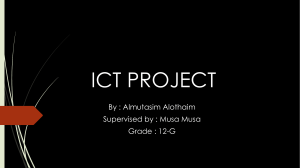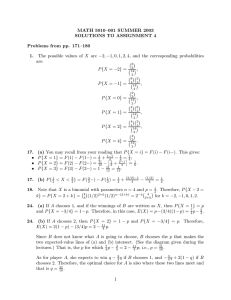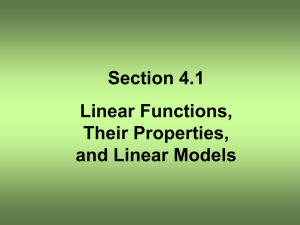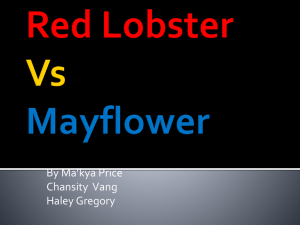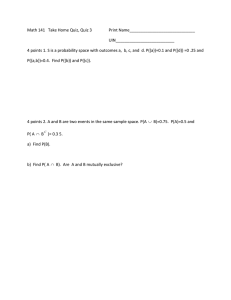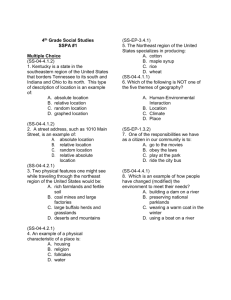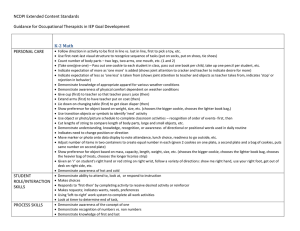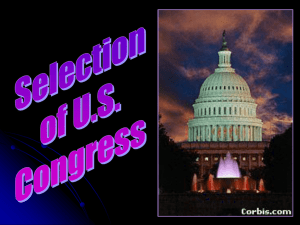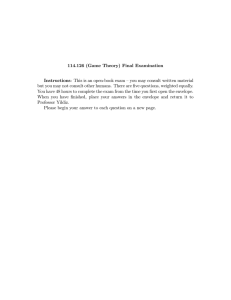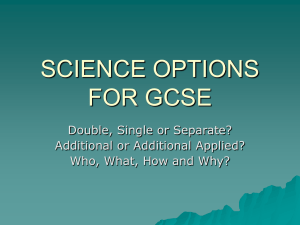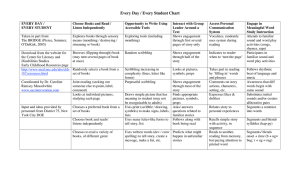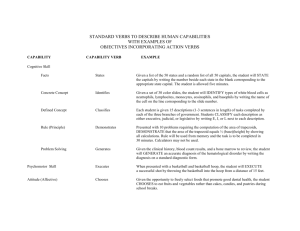Criterion B: Investigating
advertisement
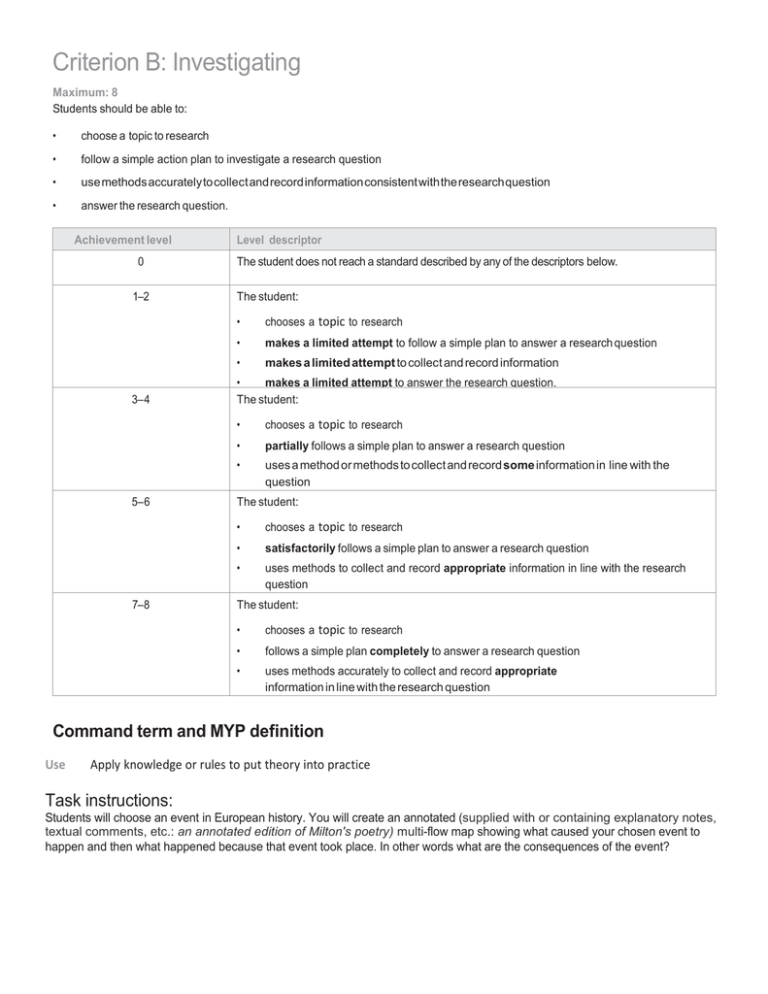
Criterion B: Investigating Maximum: 8 Students should be able to: • choose a topic to research • follow a simple action plan to investigate a research question • use methods accurately to collect and record information consistent with the research question • answer the research question. Achievement level 0 1–2 3–4 5–6 7–8 Level descriptor The student does not reach a standard described by any of the descriptors below. The student: • chooses a topic to research • makes a limited attempt to follow a simple plan to answer a research question • makes a limited attempt to collect and record information • makes a limited attempt to answer the research question. The student: • chooses a topic to research • partially follows a simple plan to answer a research question • uses a method or methods to collect and record some information in line with the question • partially answers the question. The student: • chooses a topic to research • satisfactorily follows a simple plan to answer a research question • uses methods to collect and record appropriate information in line with the research question • satisfactorily answers the question. The student: • chooses a topic to research • follows a simple plan completely to answer a research question • uses methods accurately to collect and record appropriate information in line with the research question • completely answers the question. Command term and MYP definition Use Apply knowledge or rules to put theory into practice Task instructions: Students will choose an event in European history. You will create an annotated (supplied with or containing explanatory notes, textual comments, etc.: an annotated edition of Milton's poetry) multi-flow map showing what caused your chosen event to happen and then what happened because that event took place. In other words what are the consequences of the event? Topics to choose from Thanks Renaissanceo art, architecture, science, printing press, Johannes Gutenberg, rise of the middle class, Michelangelo, Leonardo da Vinci, Reformationo Martin Luther, anti reformation, development of Protestantism, Henry VIII The Age of Enlightenment Scientific Revolutiono Galileo, Copernicus, Isaac Newton, Madam Curie, The French RevolutionLouis XVI, Robespierre, Napoleon Bonaparte Age of Exploration, o Christopher Columbus, De Gama, Sir Walter Raleigh, Elizabeth I, John Cabot, Prince Henry the Navigator, Ponce de Leon, Columbian Exchange Colonialism Industrial Revolution Peter the Great Russian Revolution, Vladimir Lenin, Joseph Stalin, World War I, weaponry, airplane in battle, trench warfare, Treaty of Versailles, World War II, holocaust, Cold War, The Wall, Divided Germany, Collapse of Eastern Europe Formation of the European Union
